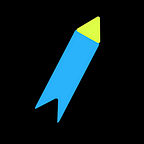Introduction
Abstractive Health is a generative AI startup in New York City that helps leading healthcare organizations such as Weill Cornell, who face significant challenges when it comes to summarizing large volumes of medical documents. Currently, the process of summarizing medical charts is time-consuming, requiring the expertise of third or fourth-year medical students to manually write summaries for each patient chart. With hundreds of thousands to millions of medical charts to process, this approach was labor-intensive and expensive. To address this issue, Abstractive Health helps leading healthcare institutions like Weill Cornell leverage language models (LLMs) to expedite the summarization process, leading them to collaborate with Anote, a trusted partner known for their innovative annotation interface.
The Problem
Abstractive Health aimed to enhance the summarization process of medical charts by reducing the time and cost involved. For abstractive health, providing training data to the LLMs to predict medical chart summaries requires skilled annotators to label medical summaries. These skilled professionals spend approximately 15 minutes per medical chart, so they can summarize around 4 medical charts per hour. These skilled professionals were highly trained, third to fourth year medical students who earn around $20 per hour. Consequently, Abstractive Health was spending an estimated $50,000 on annotators to summarize 10,000 charts annually, posing a significant drain on resources and time. They sought an interface that would facilitate the development and utilization of LLMs to accelerate the summarization process while providing an efficient platform for the annotators to work with.
Prior Solution
Abstractive Health was previously using an annotation interface called Redcap, which was not ideal for their needs. Annotators were overwhelmed with the complexity of the Redcap interface, often spending unnecessary time grappling with the system rather than focusing on the task of summarization. However, because patient medical charts contain sensitive PII / private information, the data was required to be completely on premise, in an isolated environment, which made finding a better annotation interface extremely difficult. Abstractive Health looked at over 45 annotation interfaces for summaries, but couldn’t find one that met their needs, until Anote.
The Solution: Anote Interface by Anote
Abstractive Health collaborated with Anote, a renowned provider of annotation solutions, to overcome their challenges. Anote offered a comprehensive annotation interface that seamlessly integrated with Abstractive Health’s existing systems. Users could upload medical charts and customize questions for the AI model to generate summaries. With the Anote Interface, they were able to run the annotation system on-premise, keeping the medical charts local and secure within Weill Cornell hospital.
Key Features and Benefits
Streamlined Workflow: With the Anote Interface, Abstractive Health’s annotators experienced a streamlined workflow, eliminating the need for manual chart summarization. They could focus on reviewing and refining the AI-generated summaries from Abstractive Health, rather than starting from scratch.
AI Assistance: By leveraging AI capabilities, Abstractive Health harnessed the power of LLMs to automate the summarization process. The AI model generated initial summaries, saving significant time and effort for the annotators.
Collaboration and Task Management: The Anote Interface empowered admins to assign medical charts to annotators efficiently. Admins could monitor progress, allocate tasks, and ensure a smooth workflow. Annotators, in turn, had a user-friendly interface to review and refine the AI-generated summaries, enabling collaboration between annotators and the AI model.
Roles of Users in the Anote Interface
Admins: Admins played a crucial role in managing the medical chart summarization process and ensuring its smooth operation. They assigned specific medical charts to annotators, monitored progress of annotators. They also reviewed a sample of the charts summarized by annotators to ensure quality control.
Annotators: Annotators were skilled professionals responsible for annotating assigned medical charts and creating accurate and concise summaries. Annotators utilized their expertise to refine and enhance the AI-generated summaries.
Video Demo
Here is a video demo to see the Anote annotation interface in action:
https://www.loom.com/share/e8b829e7612446ed8ab9ff50bd9f2fa3
Results and Impact
By adopting Anote, Abstractive Health achieved substantial improvements in the efficiency and cost-effectiveness of medical document summarization. The adoption of Anote Interface led to an 80% reduction in time spent, translating to an estimated annual savings of $40,000.
Conclusion
Through their collaboration with Anote and the implementation of the Anote Interface, Abstractive Health successfully addressed the challenges associated with summarizing large volumes of medical documents. The adoption of LLMs, facilitated by the interface, revolutionized the workflow, significantly reducing the time and cost involved in the medical summarization process. Abstractive Health, and thereby Weill Cornell, experienced substantial benefits, including increased efficiency, improved accuracy, significant cost savings, and optimized collaboration between admins and annotators. As Abstractive Health continues to leverage the Anote Interface, they look forward to further advancements in AI technology that can help streamline their workflows even more.
